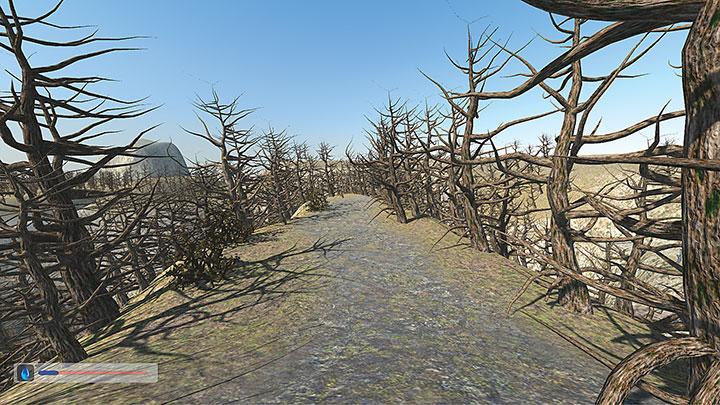
Teacher: Guest artist Matt Parker, a game designer and new-media artist.
Focus: The Princeton Atelier class divided into five teams assigned to create their own interactive video games about climate change, using techniques such as 3D modeling, illustration, coding, narrative writing, and sound design. Storylines ranged from a gondolier traversing the water-filled streets in a futuristic New York City to living day-to-day in a post-apocalyptic setting caused by climate change.
“The idea is to attempt to put people in a situation where climate change has real impact, and then have it inform their lives now,” Parker said.
Guest speakers included New York Times climate-desk reporter Livia Albeck-Ripka, who spoke about how to humanize climate change, and game designers who described their methods and how to create games to support social change.
On the syllabus: Students played four games to help inform their game-designing:
This War of Mine, inspired by the siege of Sarajevo during the Bosnian war, in which players control a group of civilian survivors in a makeshift shelter.
That Dragon, Cancer, created by a man whose year-old son lived for four years after he was diagnosed with terminal cancer. The game is designed to have the player experience the high and low moments of that period.
Gone Home, in which the player takes the role of a 21-year-old woman who returns from overseas to her family’s home and discovers that the house is deserted.
Papers, Please, a puzzle video game in which the player takes the role of a border-crossing immigration officer in a fictional dystopian Eastern Bloc country.
Student perspective: “There were intense wildfires back in December in California — this is slowly becoming real,” said Robert Liu ’20, a member of the team that designed “Fireline 2028,” in which players try to stop fires from spreading in California years from now. Liu, a volunteer with the Princeton Fire Department, said he was inspired by a documentary about California firefighters. “This combination of climate change and human land management is ... creating very complicated and dangerous situations for the wildland firefighters,” he said.
Key takeaway: Parker hopes at least one of the games will be funded and developed for commercial release to “have as broad of an impact as possible.”
